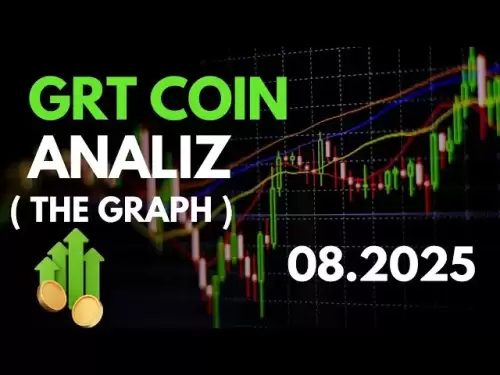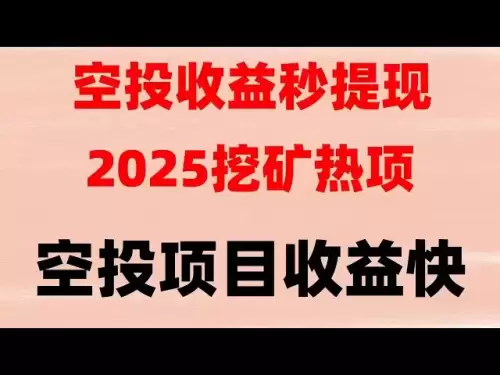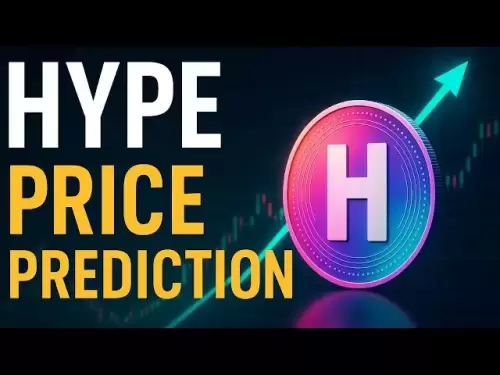-
 Bitcoin
Bitcoin $119300
2.40% -
 Ethereum
Ethereum $4254
-0.20% -
 XRP
XRP $3.184
-1.38% -
 Tether USDt
Tether USDt $1.000
0.00% -
 BNB
BNB $803.9
0.58% -
 Solana
Solana $183.1
1.50% -
 USDC
USDC $0.0000
0.01% -
 Dogecoin
Dogecoin $0.2339
-2.87% -
 TRON
TRON $0.3384
0.88% -
 Cardano
Cardano $0.8018
-0.29% -
 Hyperliquid
Hyperliquid $45.13
3.14% -
 Chainlink
Chainlink $22.10
0.96% -
 Stellar
Stellar $0.4439
-0.94% -
 Sui
Sui $3.875
-0.73% -
 Bitcoin Cash
Bitcoin Cash $570.7
0.24% -
 Hedera
Hedera $0.2589
-2.90% -
 Ethena USDe
Ethena USDe $1.001
-0.01% -
 Avalanche
Avalanche $23.83
-1.73% -
 Litecoin
Litecoin $123.8
2.61% -
 Toncoin
Toncoin $3.351
-1.13% -
 UNUS SED LEO
UNUS SED LEO $9.103
1.13% -
 Shiba Inu
Shiba Inu $0.00001356
-1.40% -
 Uniswap
Uniswap $10.93
-0.19% -
 Polkadot
Polkadot $4.057
-1.97% -
 Dai
Dai $1.000
0.01% -
 Cronos
Cronos $0.1646
4.66% -
 Ethena
Ethena $0.7974
8.11% -
 Pepe
Pepe $0.00001208
-2.89% -
 Bitget Token
Bitget Token $4.445
-1.70% -
 Monero
Monero $268.8
-2.00%
How to understand oracle in contract trading?
Oracles serve as vital intermediaries for smart contracts, bridging the gap between the blockchain and real-world events, enabling data-driven execution that enhances contract functionality and simplifies complexities.
Feb 23, 2025 at 12:24 am
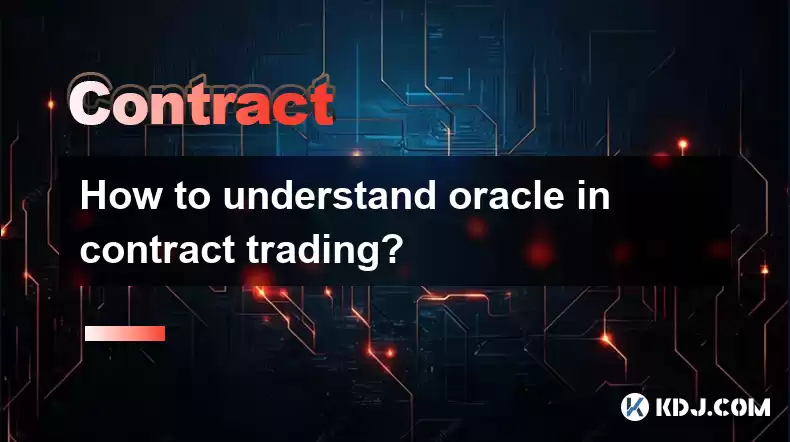
How to Understand Oracle in Contract Trading?
Key Points:
- What is an oracle?
- Why are oracles important in contract trading?
- How do oracles work?
- What are the different types of oracles?
- How to choose the right oracle for your contract trading needs?
- Best practices for using oracles in contract trading
What is an oracle?
In the context of contract trading, an oracle is a third-party service that provides reliable and verifiable information to smart contracts. Oracles are used to feed external data into smart contracts, which allows them to execute based on real-world events or conditions. This information can include market data, such as price feeds, or other data, such as weather conditions or the outcome of a sporting event.
Why are oracles important in contract trading?
Oracles are important in contract trading because they allow smart contracts to interact with the real world. Without oracles, smart contracts would be limited to executing based on the information that is already stored on the blockchain. This would make them much less useful for complex applications, such as those that require real-time data or that need to interact with external systems.
How do oracles work?
Oracles work by collecting data from the real world and then transmitting it to smart contracts on the blockchain. There are a variety of different ways that oracles can do this, but the most common methods involve using APIs, web scraping or direct hardware connections. Oracles can be either centralized or decentralized. Centralized oracles are controlled by a single entity, while decentralized oracles are controlled by a network of nodes.
What are the different types of oracles?
There are several different types of oracles, each with its own strengths and weaknesses.
- Software oracles collect data from online sources, such as websites and APIs. They are relatively easy to set up and use, but they can be vulnerable to hacking and manipulation.
- Hardware oracles collect data from physical devices, such as sensors and cameras. They are more secure than software oracles, but they can be more expensive to set up and use.
- Human oracles collect data from human sources, such as surveys and polls. They are the most subjective type of oracle, but they can provide valuable insights that cannot be obtained from other sources.
How to choose the right oracle for your contract trading needs?
When choosing an oracle for your contract trading needs, there are a number of factors to consider:
- Security: The security of the oracle is paramount. You need to be sure that the oracle is not vulnerable to hacking or manipulation.
- Reliability: You need to be sure that the oracle is reliable and will provide you with accurate and timely data.
- Cost: The cost of the oracle is also an important factor to consider. You need to find an oracle that provides the features you need at a price that you can afford.
Best practices for using oracles in contract trading
Here are some best practices for using oracles in contract trading:
- Use multiple oracles. This will help to improve the security and reliability of your contract.
- Monitor your oracles. Keep an eye on the performance of your oracles and make sure that they are providing you with accurate and timely data.
- Have a backup plan. In case one of your oracles fails, you need to have a backup plan in place. This could involve using a different oracle or using a different method of collecting data.
FAQs
Q: What are the risks of using oracles in contract trading?
A: The main risks of using oracles in contract trading are security and reliability. Oracles can be vulnerable to hacking and manipulation, and they can also fail to provide accurate or timely data. It is important to mitigate these risks by using multiple oracles, monitoring your oracles, and having a backup plan in place.
Q: What are the benefits of using oracles in contract trading?
A: Oracles provide a number of benefits in contract trading. They allow smart contracts to interact with the real world, they can help to improve the security and reliability of contracts, and they can provide valuable insights that cannot be obtained from other sources.
Q: How do I choose the right oracle for my contract trading needs?
A: When choosing an oracle for your contract trading needs, there are a number of factors to consider, including security, reliability, cost, and features. It is important to find an oracle that provides the features you need at a price that you can afford.
Q: What are the best practices for using oracles in contract trading?
A: Best practices for using oracles in contract trading include using multiple oracles, monitoring your oracles, and having a backup plan in place.
Disclaimer:info@kdj.com
The information provided is not trading advice. kdj.com does not assume any responsibility for any investments made based on the information provided in this article. Cryptocurrencies are highly volatile and it is highly recommended that you invest with caution after thorough research!
If you believe that the content used on this website infringes your copyright, please contact us immediately (info@kdj.com) and we will delete it promptly.
- BlockDAG's T6900 Crypto Presale Buzz: Is the $0.0016 Entry the Real Deal?
- 2025-08-11 09:08:47
- Animoca Brands' Cool Cats Investment: A Purr-fect Match for the NFT Future
- 2025-08-11 09:08:47
- XRP, Luminite Wallet, and DeFi Access: A New Era?
- 2025-08-11 09:08:47
- Dogecoin, SHIB Whales, and Meme Coins: What's the Latest?
- 2025-08-11 09:08:47
- Bitcoin's Wild Ride: Short Squeezes, $120K Dreams, and What It All Means
- 2025-08-11 09:08:48
- Crypto Treasury, Capital Shift, and Startup Raises: What's the Deal?
- 2025-08-11 09:08:48
Related knowledge
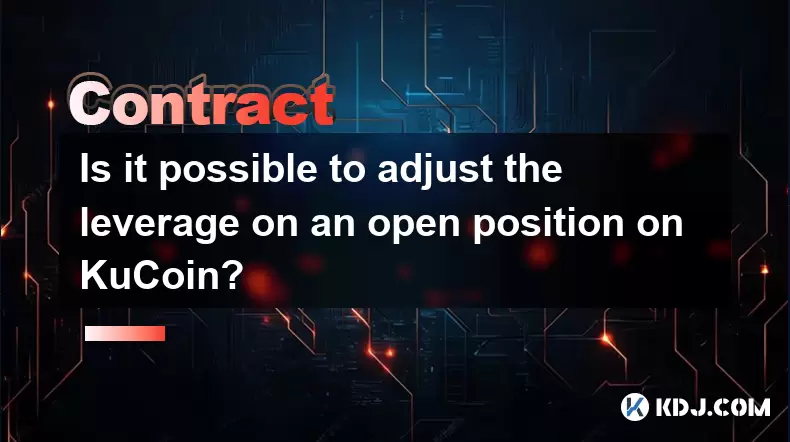
Is it possible to adjust the leverage on an open position on KuCoin?
Aug 09,2025 at 08:21pm
Understanding Leverage in KuCoin Futures TradingLeverage in KuCoin Futures allows traders to amplify their exposure to price movements by borrowing fu...
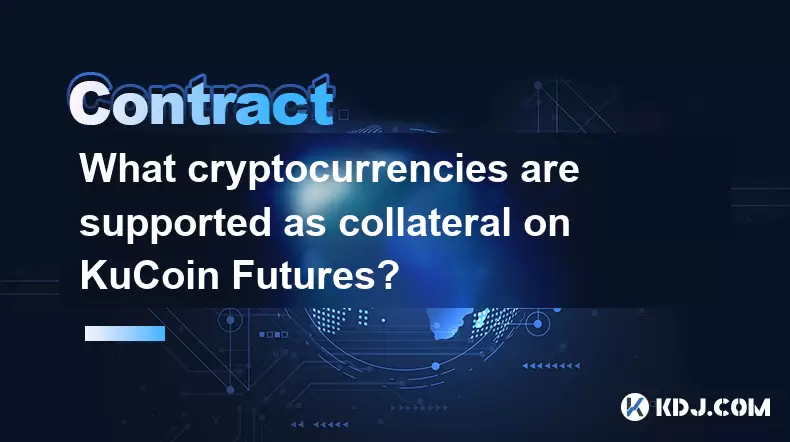
What cryptocurrencies are supported as collateral on KuCoin Futures?
Aug 11,2025 at 04:21am
Overview of KuCoin Futures and Collateral MechanismKuCoin Futures is a derivatives trading platform that allows users to trade perpetual and delivery ...
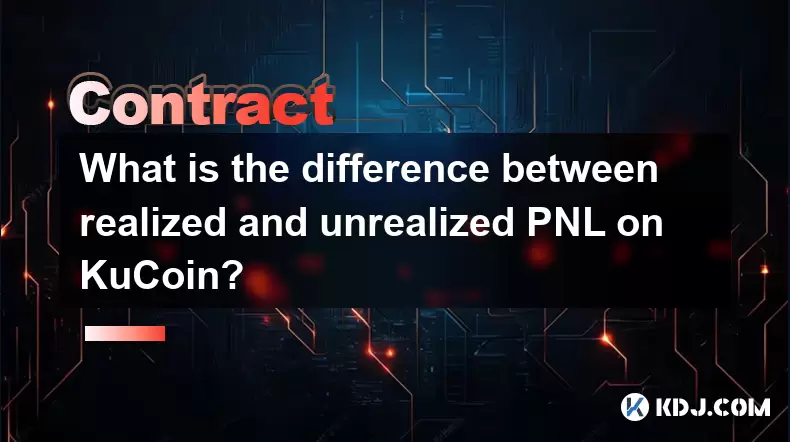
What is the difference between realized and unrealized PNL on KuCoin?
Aug 09,2025 at 01:49am
Understanding Realized and Unrealized PNL on KuCoinWhen trading on KuCoin, especially in futures and perpetual contracts, understanding the distinctio...
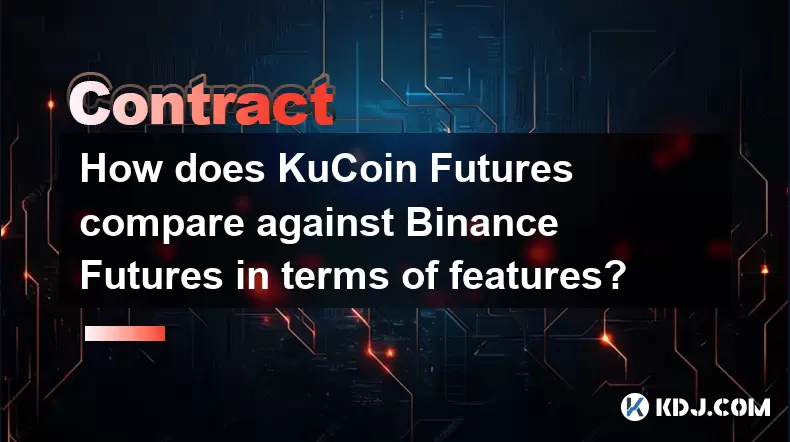
How does KuCoin Futures compare against Binance Futures in terms of features?
Aug 09,2025 at 03:22am
Trading Interface and User ExperienceThe trading interface is a critical component when comparing KuCoin Futures and Binance Futures, as it directly i...
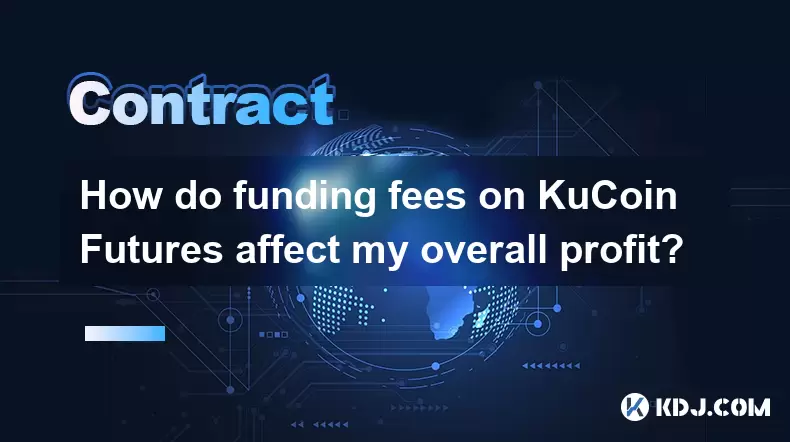
How do funding fees on KuCoin Futures affect my overall profit?
Aug 09,2025 at 08:22am
Understanding Funding Fees on KuCoin FuturesFunding fees on KuCoin Futures are periodic payments exchanged between long and short position holders to ...
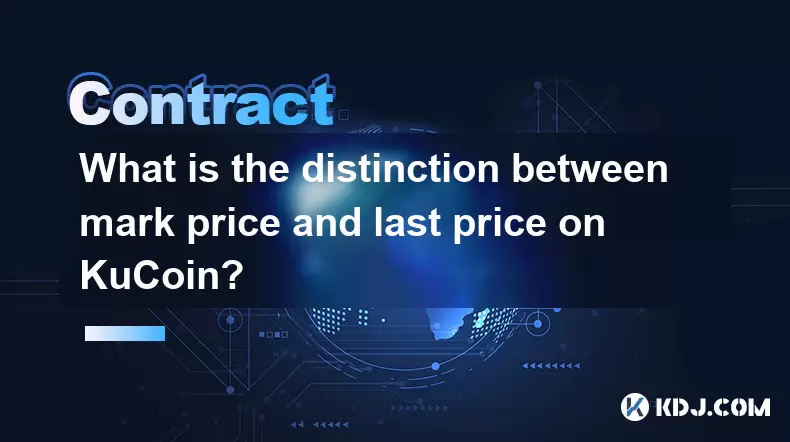
What is the distinction between mark price and last price on KuCoin?
Aug 08,2025 at 01:58pm
Understanding the Basics of Price in Cryptocurrency TradingIn cryptocurrency exchanges like KuCoin, two key price indicators frequently appear on trad...

Is it possible to adjust the leverage on an open position on KuCoin?
Aug 09,2025 at 08:21pm
Understanding Leverage in KuCoin Futures TradingLeverage in KuCoin Futures allows traders to amplify their exposure to price movements by borrowing fu...

What cryptocurrencies are supported as collateral on KuCoin Futures?
Aug 11,2025 at 04:21am
Overview of KuCoin Futures and Collateral MechanismKuCoin Futures is a derivatives trading platform that allows users to trade perpetual and delivery ...

What is the difference between realized and unrealized PNL on KuCoin?
Aug 09,2025 at 01:49am
Understanding Realized and Unrealized PNL on KuCoinWhen trading on KuCoin, especially in futures and perpetual contracts, understanding the distinctio...

How does KuCoin Futures compare against Binance Futures in terms of features?
Aug 09,2025 at 03:22am
Trading Interface and User ExperienceThe trading interface is a critical component when comparing KuCoin Futures and Binance Futures, as it directly i...

How do funding fees on KuCoin Futures affect my overall profit?
Aug 09,2025 at 08:22am
Understanding Funding Fees on KuCoin FuturesFunding fees on KuCoin Futures are periodic payments exchanged between long and short position holders to ...

What is the distinction between mark price and last price on KuCoin?
Aug 08,2025 at 01:58pm
Understanding the Basics of Price in Cryptocurrency TradingIn cryptocurrency exchanges like KuCoin, two key price indicators frequently appear on trad...
See all articles





















